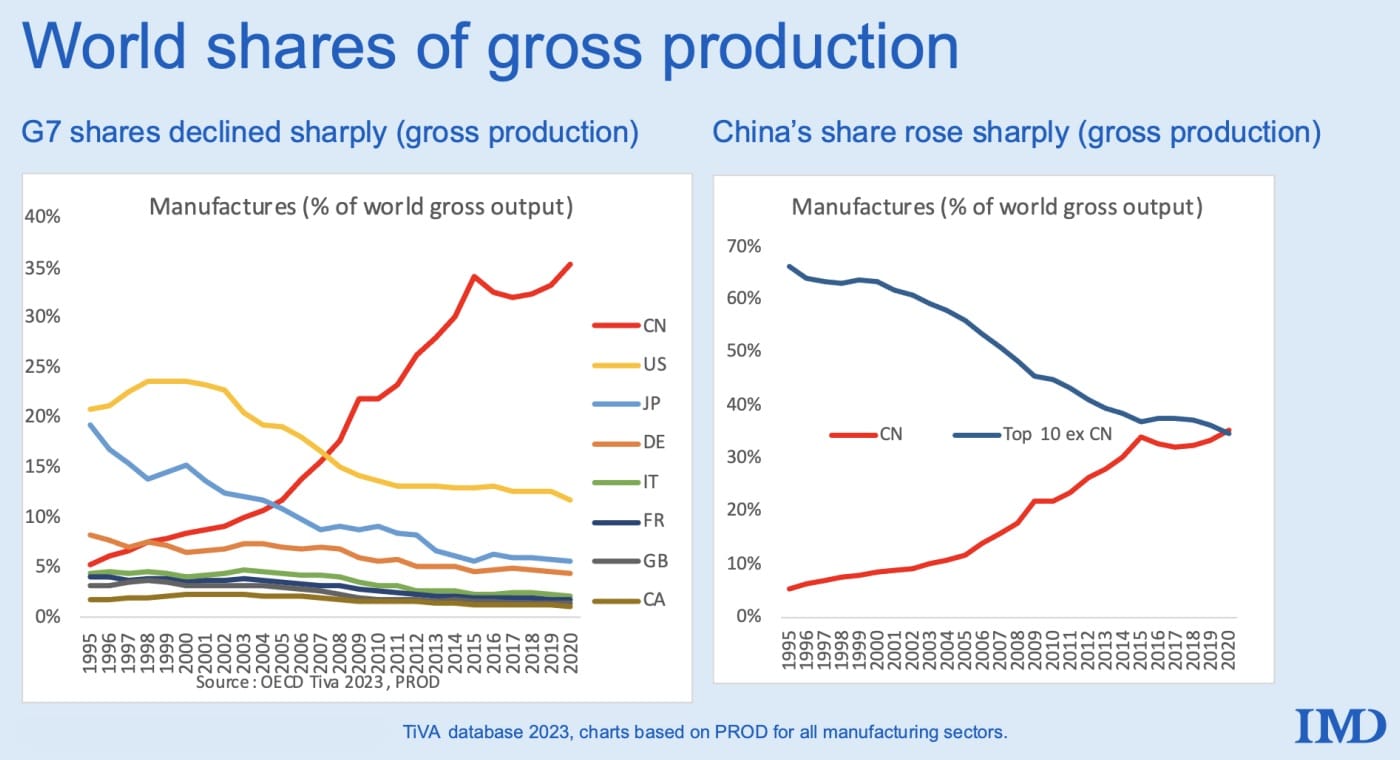Gaining context on China and its rise (Good reads)
Between China’s rise in lunar exploration and my visit to the country last year, I’ve grown more curious about how the Chinese collectively think and work. So I set out to gain some high-level context of Chinese policies and history, which have now helped me identify specific areas to dive into over time. If you too find yourself in a similar situation, and want something more grounded than biased pictures from Western media, here are some good links with excerpts.
China is the world’s sole manufacturing superpower
– Richard Baldwin
China’s industrialization is unprecedented. The last time the ‘king of the manufacturing hill’ got knocked off the throne was when the US surpassed the UK just before WW1. It took the US the better part of a century to rise to the top; the China-US switch took about 15 or 20 years. China’s industrialization, in short, defies comparison.

How did China become a manufacturing superpower?
– Yogesh Upadhyaya
China has kept most of its commodity and energy producers in the public sector. What is more, the prices that these businesses can charge have been regulated. This meant that the terms of trade were favorable for manufacturing companies using these commodities. Many authors describe how China has resisted pressure to go to a system of ‘market prices’ for such inputs.
[...]
A high level of support can make entrepreneurs complacent. This has not happened in China. One of the big reasons is fierce competition. The decentralized nature of the country’s governance and the entrepreneurial nature of the society means that there were hundreds of companies in many sectors.
China shows science is not dependent on liberal democracy
– Caroline Wagner
Since 1990, China’s national spending on research and development increased at a rapid clip. From less than 0.6 percent of GDP in 1990, in 2023, China spent over 2.2 percent on R&D.
The short march to China’s hydrogen bomb
– Hui Zhang
China formally codenamed its first nuclear bomb “device 596” to commemorate the date of June 1959 when Moscow sent a letter to Beijing informing that it would not provide the promised atomic bomb model and data.
Notes on China
– Dwarkesh Patel
We really need to do a better job with Chinese students studying abroad in America. These students will likely end up in influential positions back home, yet colleges treat them basically like cash cows. They often arrive bombarded with propaganda about America, which is reinforced by the prevalent discourse at universities. And they find themselves isolated by language barriers and cultural differences. Giving these future leaders a genuinely positive experience in America might be the best thing we can do to improve US-China relations in the long run.
Ancient China
– Joshua Mark
The Tang Dynasty (618-907 CE) is considered the 'golden age' of Chinese civilization. Gao-Tzu prudently maintained and improved upon the bureaucracy initiated by the Sui Dynasty while dispensing with extravagant military operations and building projects. With minor modifications, the bureaucratic policies of the Tang Dynasty are still in use in Chinese government in the modern day. By the time of the rule of Emperor Xuanzong (712-756 CE) China was the largest, most populous, & most prosperous country in the world.
Do you have recommendations for what I should read next to better understand China’s growing and leading technological capabilities? Email or DM me.